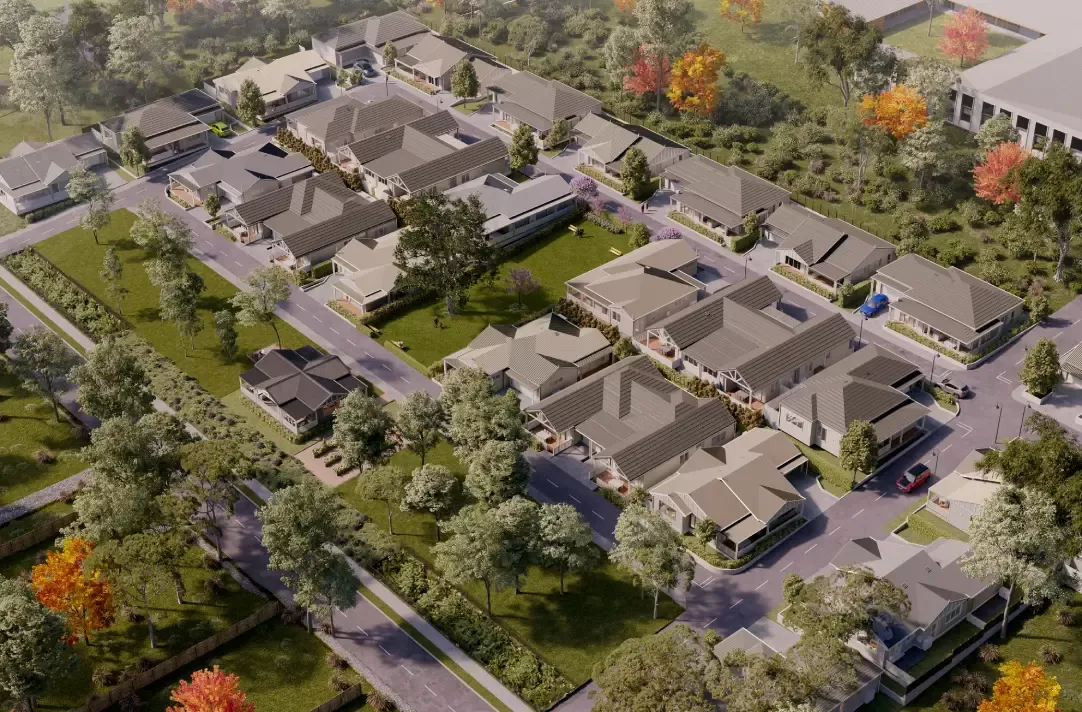Many contemplate downsizing and moving to a retirement village to enjoy a vibrant and supportive community tailored to their needs. However, before making such a significant life transition, it’s crucial to carefully consider various factors to ensure that a retirement village is the right choice.
This article will explore essential considerations before moving to a retirement village, helping individuals make informed decisions about their future living arrangements.
1. Lifestyle and Amenities
Before moving to a retirement village, consider your lifestyle preferences and the amenities that matter most. Retirement villages like you can see in over 55s retirement villages offer a wide range of facilities and services, including fitness centers, swimming pools, libraries, craft rooms, and social activities.
Evaluate the amenities available at different retirement villages and determine which ones align with your interests and hobbies. Choosing a retirement village with amenities that support your preferred lifestyle can enhance your overall well-being and enjoyment of retirement.
2. Level of Care
Another important consideration is the level of care provided at the retirement village. Some retirement villages offer independent living options, while others provide assisted living, memory care, or skilled nursing services. Assess your current health needs and consider how they may change over time.
If you anticipate needing assistance with activities of daily living or healthcare support, opt for a retirement village that offers the appropriate level of care. Additionally, inquire about the availability of healthcare professionals, emergency response systems, and personalized care plans to ensure your needs will be met.
3. Financial Considerations
Moving to a retirement village involves financial considerations that warrant careful attention. Retirement village fees typically include an entrance fee or purchase price and ongoing monthly fees for amenities, services, and care options. Additionally, residents may be responsible for healthcare costs and other expenses not covered by the retirement village fees.
Evaluate your financial situation, including retirement savings, pension income, and healthcare expenses, to determine if you can afford the costs associated with living in a retirement village. Consider consulting with a financial advisor to assess your financial readiness and develop a budget that aligns with your retirement goals.
4. Location and Accessibility
The location of the retirement village is another crucial factor to consider. Evaluate the proximity of the retirement village to essential services such as healthcare facilities, grocery stores, and recreational amenities.
In addition, consider the accessibility of the retirement village in terms of transportation options and proximity to family and friends. Choosing a retirement village in a convenient and desirable location can enhance your quality of life and make it easier to maintain social connections and engage in community activities.
5. Social and Community Engagement
One of the key benefits of living in a retirement village is the opportunity for social interaction and community engagement. Before moving to a retirement village, consider the social atmosphere and community culture.
Attend community events, social gatherings, and activities the retirement village hosts to understand the community dynamics and meet potential neighbors.
Consider the availability of clubs, interest groups, and volunteer opportunities that align with your interests and values. Choosing a retirement village with a vibrant social scene and active community can enrich your retirement experience and foster meaningful relationships.
6. Residency Agreements and Contracts
Before committing to a retirement village, review the residency agreement or contract carefully. Attention to fees, services, amenities, rules, and termination clauses.
Understand your rights and responsibilities as a resident and clarify any questions or concerns with the retirement village management. Consider consulting with a legal advisor to ensure that you fully understand the terms and conditions of the residency agreement before signing any contracts.
7. Future Planning
Finally, consider your long-term goals and plans when evaluating retirement villages. Think about how the retirement village will meet your needs as you age and whether it offers options for aging in place.
Consider the availability of healthcare services, home care assistance, and supportive resources to accommodate changing health needs and preferences.
Consider the flexibility of the retirement village in accommodating modifications or upgrades to your living arrangements as needed. Planning for the future ensures you can age comfortably and gracefully in your chosen retirement village.
Deciding on Retirement Village Living
Moving to a retirement village is a significant life decision that requires careful consideration of various factors. Before proceeding, evaluate your lifestyle preferences, level of care needs, financial concerns, location preferences, social engagement opportunities, residency agreements, and future planning goals.
nformed decision about whether a retirement village is the right option for you and embark on a fulfilling and rewarding retirement journey.
By assessing these essential considerations, you can make.





